Memorial Day Weekend
In honor of Memorial Day, we will be stepping away from the computers this weekend. We'll see you again Tuesday, May 31.
In honor of Memorial Day, we will be stepping away from the computers this weekend. We'll see you again Tuesday, May 31.
The latest mass shooting in the U.S.--on Tuesday in Texas--has evoked a range of responses in the book world. Among them:
Instead of having a Memorial Day sale, Mystery Lovers Bookshop, Oakmont, Pa., is donating 10% of all purchases, in-store and online, to Sandy Hook Promise, the organization that aims to end school shootings and create a culture change that prevents violence and other harmful acts that hurt children.
Owners Tara Goldberg-DeLeo and Kristy Bodnar wrote, "As parents and mothers of elementary school children, our hearts are absolutely shattered by yet another school shooting. We are heartbroken over the shootings in Buffalo and Laguna Woods. There are no words to describe our outrage, our sadness and our fear for the inevitable next mass shooting--a problem unique to our developed country."
---
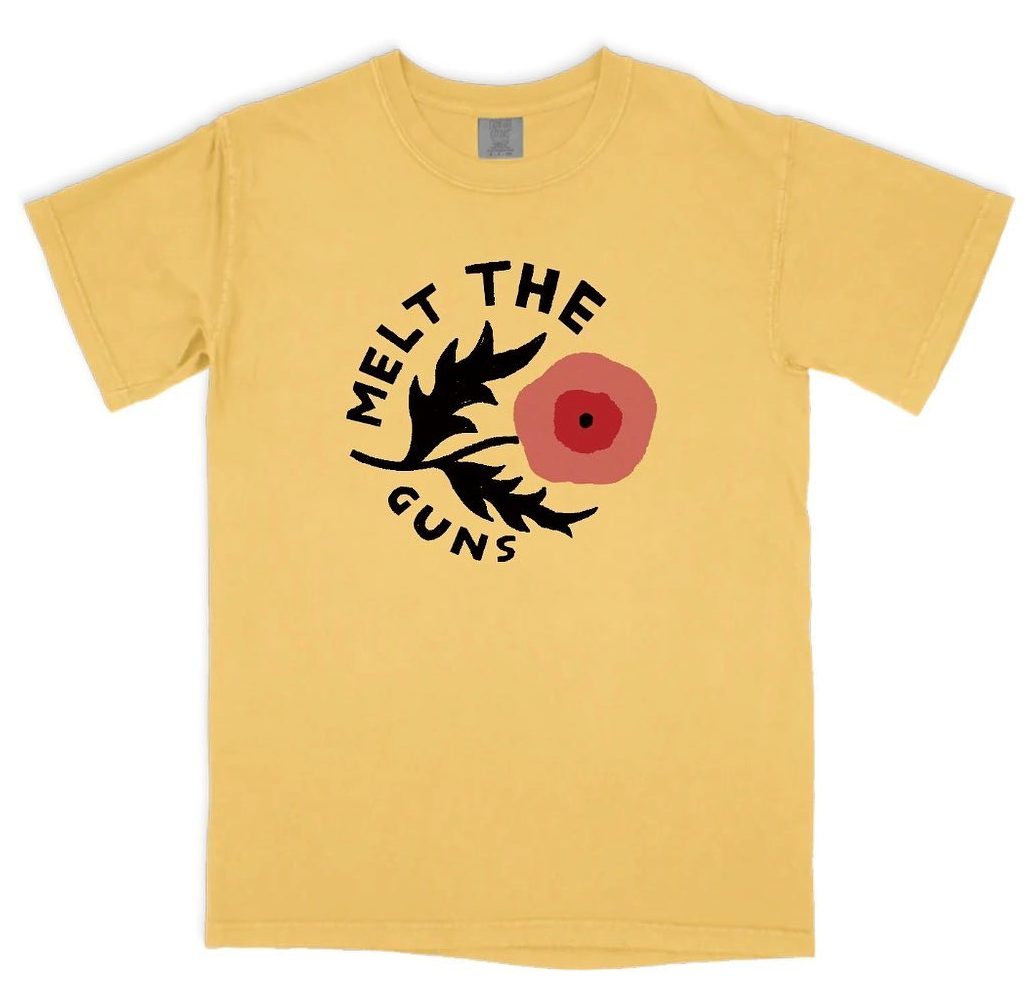 "How many more children will be lost before our country puts in place real policy measures to prevent this violence?" Books Are Magic, Brooklyn, N.Y., posted on Instagram, adding: "In response to yesterday's shooting, we are bringing back our Melt the Guns design by @carsonellis with all proceeds going to @everytown to support their work in advocating for common-sense gun policy. We have both T-shirts and prints available for preorder at the link in our bio. We are grieving with the community of Uvalde, Tex., and reeling from the relentlessness of tragedies in the U.S."
"How many more children will be lost before our country puts in place real policy measures to prevent this violence?" Books Are Magic, Brooklyn, N.Y., posted on Instagram, adding: "In response to yesterday's shooting, we are bringing back our Melt the Guns design by @carsonellis with all proceeds going to @everytown to support their work in advocating for common-sense gun policy. We have both T-shirts and prints available for preorder at the link in our bio. We are grieving with the community of Uvalde, Tex., and reeling from the relentlessness of tragedies in the U.S."
---
In a message headlined "We Stand With You," Shari Stauch, owner of Main Street Reads, Summerville, S.C., wrote, in part: "There are no words to convey the sorrow we all share with our fellow American families in Uvalde, Tex. As a mom, with a daughter who's a teacher, and a bookseller in a store that proudly serves so many families in our incredible community, this most recent tragedy has saddened me more than most. Though several states away, it's too close to home....
"But sometimes, talking about it or writing about it can help the process. This Monday, on Memorial Day, our fine writer's group, Main Street Writes, will meet on Zoom as we do most Mondays. Time will be set aside at the outset of this meeting and for as long as everyone wishes, for those wishing to share poetry or prose relating to the fears and frustration we all feel in the wake of senseless tragedy. None of us can change what happened, but sometimes gathering each other close and sharing our thoughts and words can help in some small measure to heal the grief we may feel."
---
MahoganyBooks, Washington, D.C., and Oxon Hill, Md., posted on Instagram: "Folks so busy out here banning books. We need to focus on banning these guns!" The store added: "Priorities! Our hearts are beyond heavy. Our spirits are... tired. You can have your opinions, we surely can have ours. Banning. Controlling. Stronger background checks. Something has to change. #guncontrolnow."
--
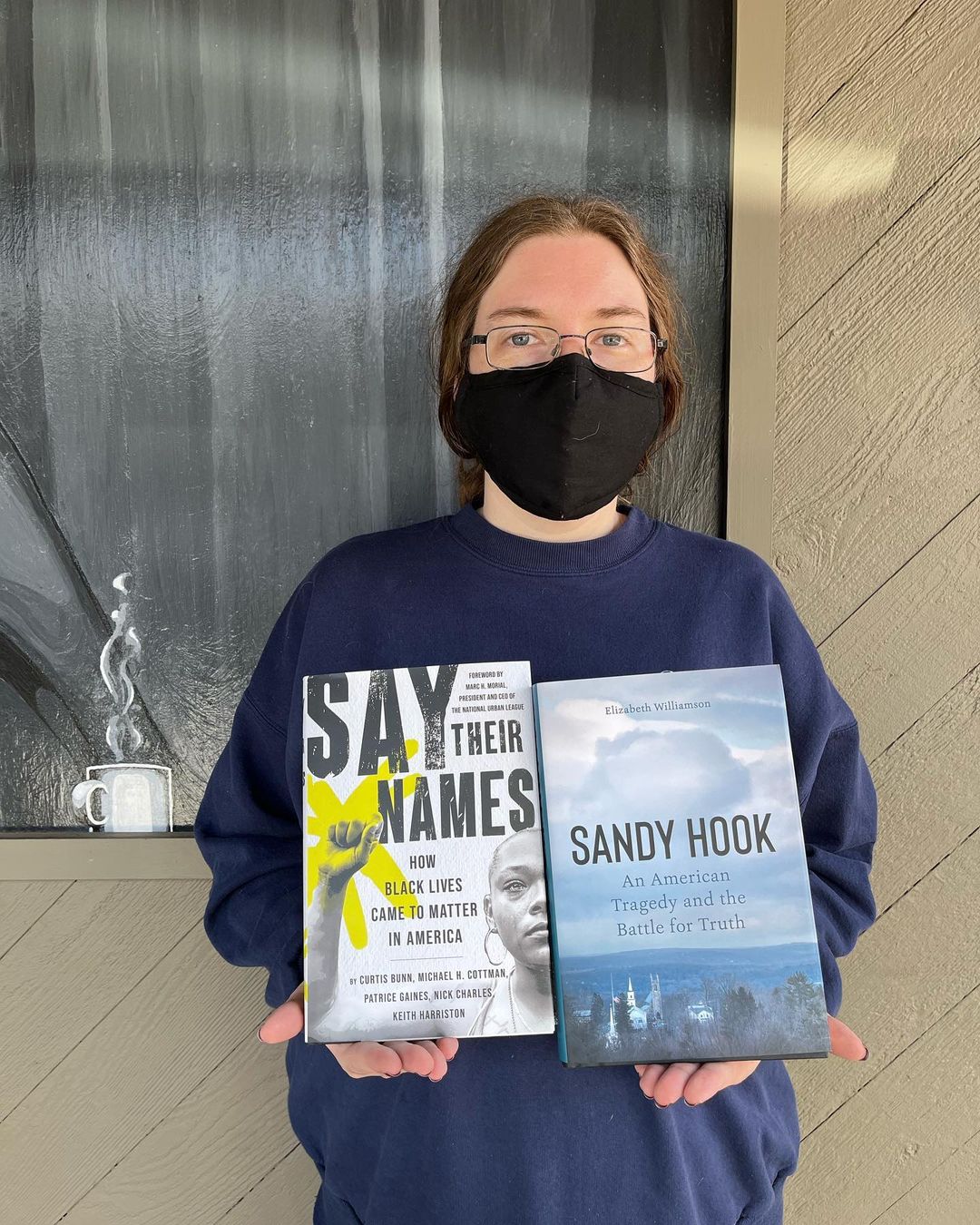 On Instagram, Eagle Harbor Book Co., Bainbridge Island, Wash., posted a series of pictures of staff holding books and wrote: "Our booksellers have been talking about what our response should be to what's happening in this country. We've decided we want to share what we know best: book recommendations. If you are able, please consider making a donation to Everytown for a cause we feel very passionate about."
On Instagram, Eagle Harbor Book Co., Bainbridge Island, Wash., posted a series of pictures of staff holding books and wrote: "Our booksellers have been talking about what our response should be to what's happening in this country. We've decided we want to share what we know best: book recommendations. If you are able, please consider making a donation to Everytown for a cause we feel very passionate about."
---
Posted on Facebook by Read Between the Lynes, Woodstock, Ill.: "Hi, friends. Our hearts are heavy. We came across this article from NPR entitled "What to say to kids when the news is scary" and wanted to share it with you. For parents and caretakers of children, we hope you will find the article informative and the resources helpful when faced with having these challenging conversations."
---
On Instagram, Literati Bookstore, Ann Arbor, Mich., posted a phrase that someone typed on the store's typewriter: "children over guns."
---
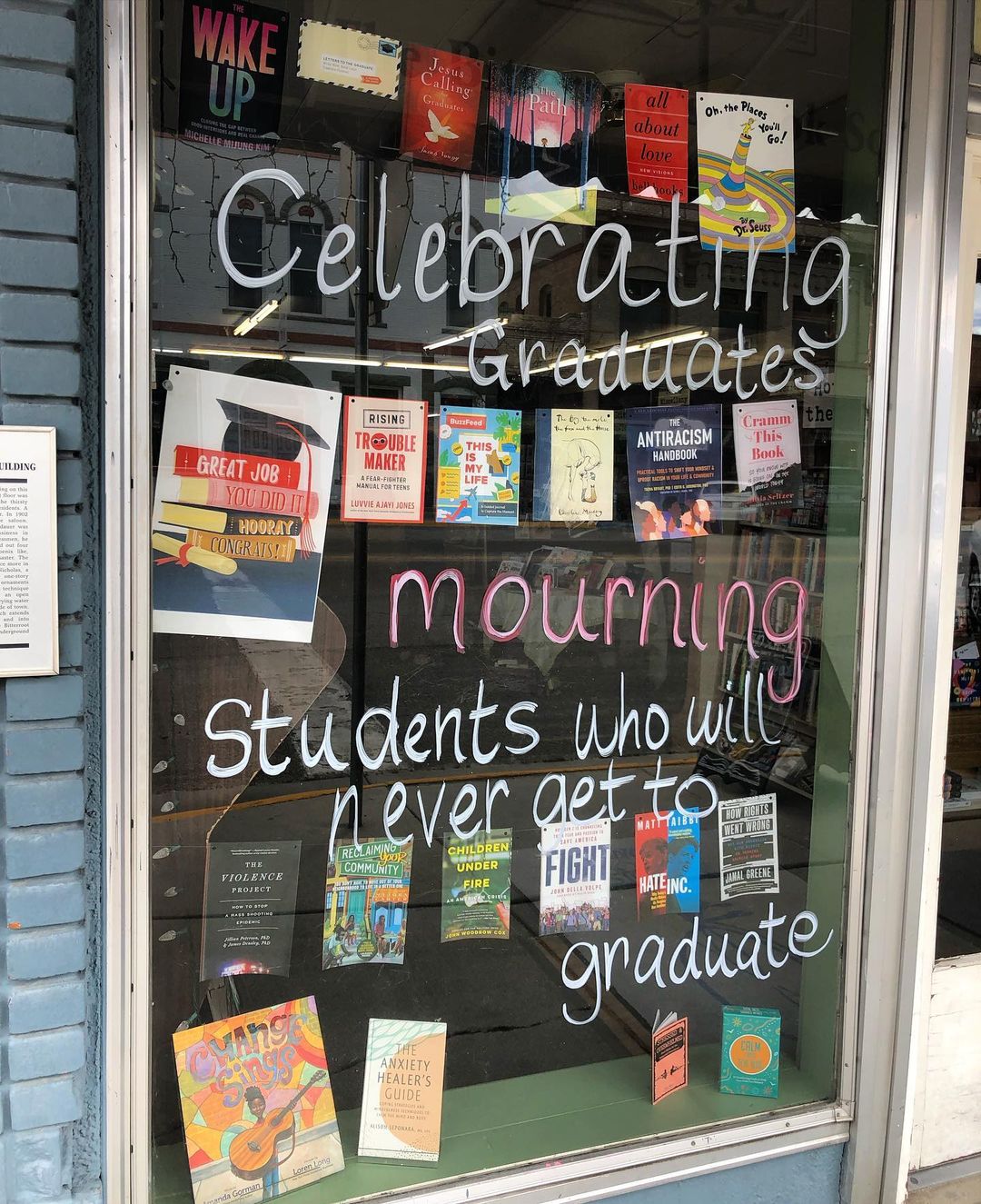 On Instagram, Chapter One Book Store, Hamilton, Mont., posted a picture of a display window reading, "Celebrating graduates, mourning students who will never get to graduate." The store added: "Through waves of rage, despair and panic, we're still here holding space for all of it. Call your elected officials. Tell your loved ones they are precious. Scream into the void. Have difficult conversations with each other. Books are a great way to start the conversation, but as readers, we still have a wider responsibility to engage with our world. Take care. It's ok to not be ok, but don't let that stop you from taking action."
On Instagram, Chapter One Book Store, Hamilton, Mont., posted a picture of a display window reading, "Celebrating graduates, mourning students who will never get to graduate." The store added: "Through waves of rage, despair and panic, we're still here holding space for all of it. Call your elected officials. Tell your loved ones they are precious. Scream into the void. Have difficult conversations with each other. Books are a great way to start the conversation, but as readers, we still have a wider responsibility to engage with our world. Take care. It's ok to not be ok, but don't let that stop you from taking action."
---
Friday, June 3, is National Gun Violence Awareness Day. Penguin Publishing Group and PRH are partnering again with Everytown for Gun Safety in support of #WearOrange weekend, to help raise awareness and send a powerful message to end gun violence.
PRH has updated its National Gun Violence Awareness Day Book List, is working to get bookstores and authors involved, and encouraging authors to sign up for the Everytown Authors Council, a group designed to harness the power of the literary community to amplify the gun safety movement.
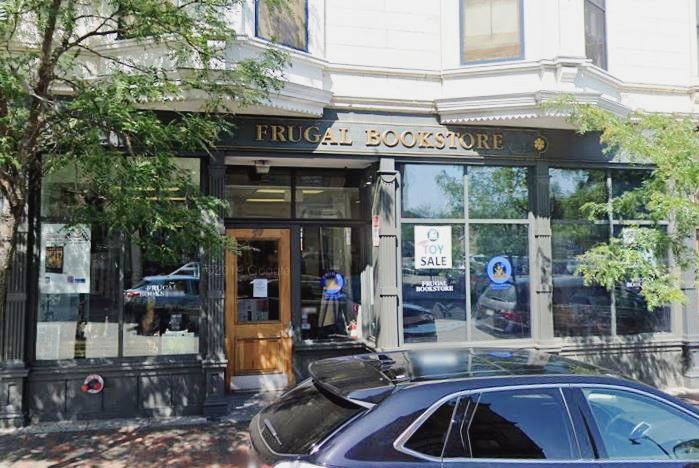
In February Frugal Bookstore suffered extensive water damage when a fire broke out in an apartment above the bookstore, setting off the building's sprinkler systems. The store's children's section, which contained the largest collection of African American children's literature in the Boston metropolitan area, was hit especially hard.
In the wake of the damage Cropper and Egerton launched a GoFundMe campaign that brought in more than $57,000. The owners have put that money to use by not only replacing destroyed books and bookshelves but also remodeling the 1,750-square-foot store. When all of the work is complete, the store will have library-like seating in a few bookstore sections, and mobile bookcases will allow the team to easily make space for events.
"We want our business to be around for generations to come," Cropper told the Journal. "We would love to expand physically and have a bigger location so we can do more things. That's our future."

Angleberger described Two-Headed Chicken (Candlewick, September 6) as an ode to the joke books he'd loved as a child. The device that sends the two-headed chicken through the multiverse is, as he described it, his "way of not having a plot and stringing together the dumbest possible jokes I could come up with." MacDonald noted that this is the first graphic novel Angleberger has written and drawn: "If I'm not mistaken, you're not known for being an artist." Angleberger replied, "I still won't be known for being an artist."
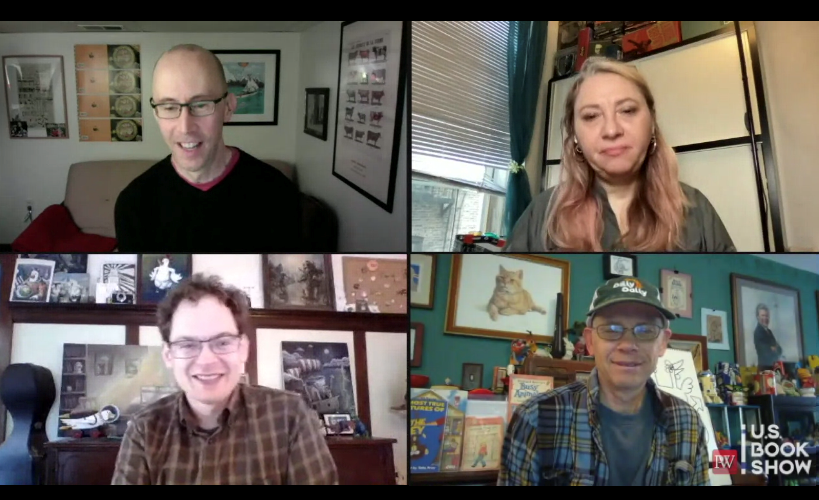 |
|
|
Clockwise from top left: Mark Leiknes, Heidi MacDonald, Tom Angleberger, Jonathan Schnapp |
|
Leiknes produced the nationally syndicated comic strip Cow and Boy. He had originally been interested in illustrating graphic novels, he said, but "backgrounds are hard"; in comics, he pointed out, "they may not even have them." It was Jeff Kinney and the Wimpy Kid books that led him to create his first middle-grade graphic novel, Quest Kids and the Dragon Pants of Gold (Union Square Kids, September 13). His children were reading the books and he thought, "Oh wow, this kinda looks like something I could do."
Schnapp became interested in graphic novels recently: "I didn't grow up reading comic books. I didn't go into comic book shops.... But then I saw the Hilda series and El Deafo [by CeCe Bell]" and he wished that graphic novels like that had been available to him as a child. Schnapp sent the manuscript for Order of the Night Jay, Book 1: The Forest Beckons to Top Shelf, unsolicited, and it will be released July 26. "Top Shelf is very welcoming to people to just send them work," Schnapp said.
"Right now, MacDonald noted, "there is no genre that is hotter than kids' graphic novels." The United States, she said, is finally catching up to Europe in the number of interesting, exciting and emotionally complicated graphic novels produced for children. "It's an amazing time right now," Angleberger replied. "I like it because I get to draw them and because I get to read them." Dav Pilkey, he said, "exploded the door" and then Raina Telgemeier "came along and started writing her types of books--there really weren't books like it." What Raina has done, Angleberger said, is "absolutely amazing." This graphic novel renaissance is what made Leiknes decide to get involved: "There's huge audiences out there that want these books and it seems like the perfect thing for me to do."
Perhaps the most important takeaway came from Angleberger, who offered some writing advice: "Don't get full of yourself and try to make great art." Entertain yourself "and keep it dumb." --Siân Gaetano, children's and YA editor, Shelf Awareness
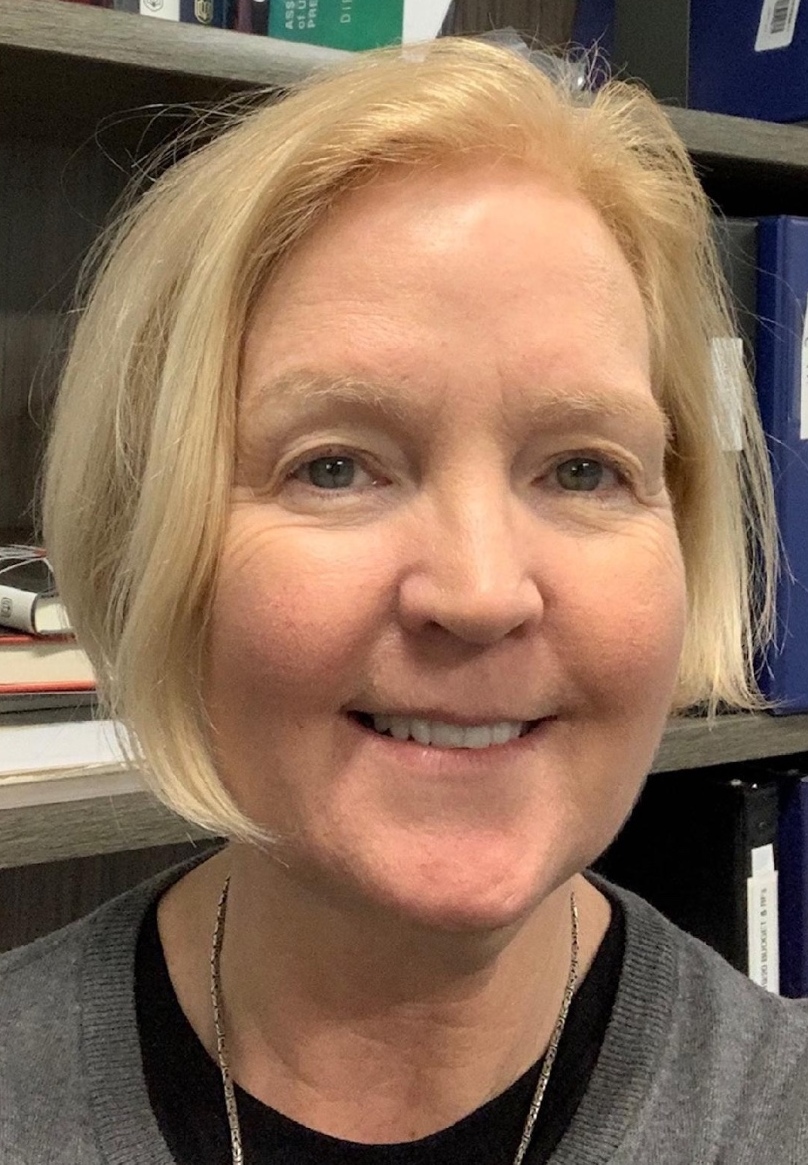 |
|
| Lynn Fisher | |
Lynn Fisher, v-p, book publishing, is retiring from the University of Toronto Press, effective June 3. She commented: "After a 35-year career in publishing, I'm taking the opportunity to step back, relax in our new cottage in Prince Edward Island, and spend more time with family." She added that she enjoyed "working with the various publishing associations both in Canada and the U.S., as well as the funding bodies and government agencies.... The support and collegiality of the publishing community combined with a commitment to publishing Canadian books with both national and international appeal has been exceptional."
Fisher has headed the press's book division for 15 years and strengthened the program in such areas as Indigenous, Gender and Urban Studies; created the Rotman-UTP Business imprint; and, most recently, launched two dedicated trade imprints, with New Jewish Press and Aevo UTP.
University of Toronto Press CEO, president and publisher Jessica Mosher, who will fill Fisher's role until a successor is named, said that Fisher's "business acumen has been instrumental to our overall success, especially as we navigated the challenges posed by the Covid pandemic. UTP's publishing program is thriving due in no small measure to Lynn's remarkable leadership."
---
 |
|
| Lynn Hildebrandt | |
Lynn Hildebrandt, sales director of Holiday House, Peachtree, and Pixel+Ink, is retiring next Tuesday, May 31. She started with Peachtree in 2014 as library and retail sales manager and earlier worked in a variety of sales positions at Barefoot Books, Houghton Mifflin Harcourt, and Simon & Schuster.
Hildebrandt said, "There is simply nothing like putting a book in the hands of someone who will love it and advocate for it. In the end, that's what this industry has been all about for me and I'm so grateful to have been able to spend my career doing just that. I've gotten to work directly with the very best aspects of the industry and have most recently developed a passion for the education channel. The people who work in it, putting wonderful books into the hands of students and teachers are some of the smartest, most dedicated people I've met."
Publisher Margaret Quinlin said, "Lynn's arrival at Peachtree was a game-changer for us. She is efficient and effective at her work in sales, wickedly smart, and a natural leader. Most importantly for me, she loved her work, the people she encountered, and the idea of Peachtree."
V-p and associate publisher Kathy Landwehr added, "Lynn understands this business from the consumer level all the way up to the high levels where significant decisions get made. She connects with books in a similarly thoughtful, intimate way."
And executive v-p and general manager Derek Stordahl said, "Working with Lynn has been remarkable. Her depth of industry experience and connections along with her profound concern for readers, authors, artists, and booksellers is truly inspiring. We all wish her much happiness in her next chapter."
 Barnes & Noble@RIT, a 46,000-square-foot B&N store on the Rochester Institute of Technology campus in Rochester, N.Y., will close permanently on June 17, the Democrat & Chronicle reported.
Barnes & Noble@RIT, a 46,000-square-foot B&N store on the Rochester Institute of Technology campus in Rochester, N.Y., will close permanently on June 17, the Democrat & Chronicle reported.
The bookstore, which opened in 2008 in the Park Point development on RIT's campus, sold textbooks and course materials, along with school-branded merchandise and general-interest books of all kinds. There was also a Starbucks Cafe, which has already shut down. Books, as well as art and school supplies, have been marked down by 75%.
The closure comes as RIT switches to Akademos as its bookstore partner. Beginning with the Fall 2022 term, RIT students will buy their textbooks and course materials online, while school merchandise will be available at the Digital Den in Monroe Hall.
The college stated that "the shift to the online platform resulted from feedback from students and faculty requesting quality materials at the lowest cost delivered in a helpful way."
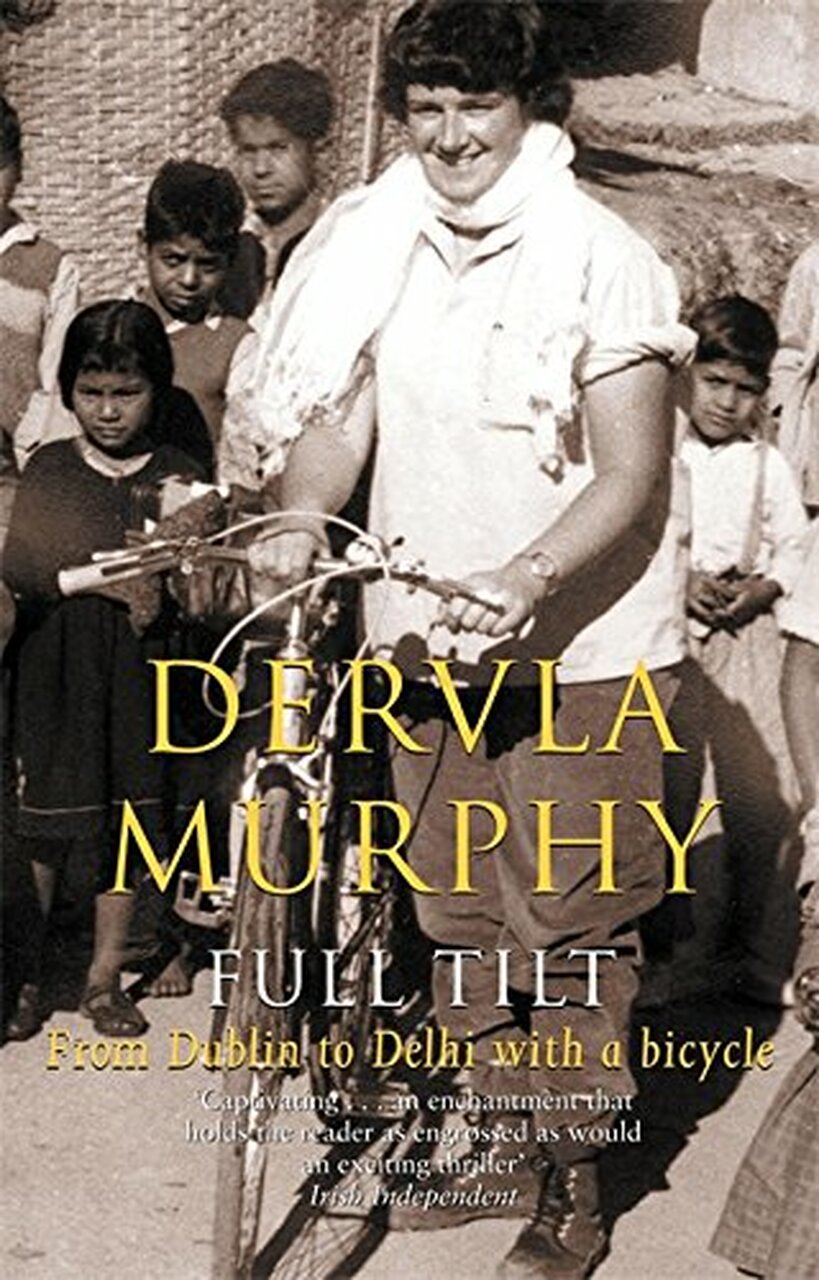 Dervla Murphy, Ireland's "most intrepid and fearless travel writer" and author of more than 25 books, died May 22, the Irish Times reported. She was 90. A keen cyclist, her first book was Full Tilt: Ireland to India with a Bicycle (1965), chronicling a six-month journey through Europe, Turkey, Iran, Afghanistan and over the Himalayas into Pakistan and India and establishing her "as an exceptional new voice."
Dervla Murphy, Ireland's "most intrepid and fearless travel writer" and author of more than 25 books, died May 22, the Irish Times reported. She was 90. A keen cyclist, her first book was Full Tilt: Ireland to India with a Bicycle (1965), chronicling a six-month journey through Europe, Turkey, Iran, Afghanistan and over the Himalayas into Pakistan and India and establishing her "as an exceptional new voice."
Traveling by bicycle, on foot, on pack pony or by public transport--she never learned to drive--Murphy listened, observed and recorded conversations she had with locals in more than 30 countries. She "regularly brought a loaded pistol on her travels, for personal safety," the Times noted. She advised travelers to use guidebooks to identify the areas most frequented by foreigners, then go in the opposite direction.
In 1979, Murphy won the Christopher Ewart-Biggs memorial prize for A Place Apart: Northern Ireland in the 1970s; and in 2019, the Royal Geographical Society celebrated her work with the Ness Award for the "popularization of geography through travel literature." In 2021, she received the Edward Stanford Award for Outstanding Contribution to Travel Writing.
In her 20s, Murphy attempted to write novels, but soon concentrated on travel writing. When her daughter Rachel was nearly five, they began traveling together, to Baltistan (Where the Indus Is Young: A Winter in Baltistan), Peru (Eight Feet in the Andes), Madagascar (Muddling Through Madagascar) and Cameroon (Cameroon with Egbert).
Gradually Murphy's interest in geopolitical developments found expression in her work, the Times noted, adding that she identified the turning point as her 1981 book on nuclear power, Race to the Finish? which she followed up with A Place Apart and Tales from Two Cities. Murphy was in Romania within weeks of Ceausescu's fall from power (Transylvania and Beyond), Rwanda less than two years after the genocide (Visiting Rwanda) and South Africa immediately post-apartheid (South from the Limpopo). In 1992, she cycled from Kenya to Zimbabwe, where she witnessed the impact of AIDS (The Ukimwi Road). She continued traveling into her early 80s, writing Silverland: A Winter Journey Across the Urals (2006); The Island that Dared: Journeys in Cuba (2008); and A Month by the Sea: Encounters in Gaza (2011).
"Dervla lived her adventurous life at the edge--of social class and gender norms, of course, but often even at the edge of actual physical survival. The uncompromisingly honest travel writing that resulted from that life belongs at the heart of the Irish literary canon, to encourage younger people to go out and experience the real world rather than merely the virtual one," said her friend Ethel Crowley.
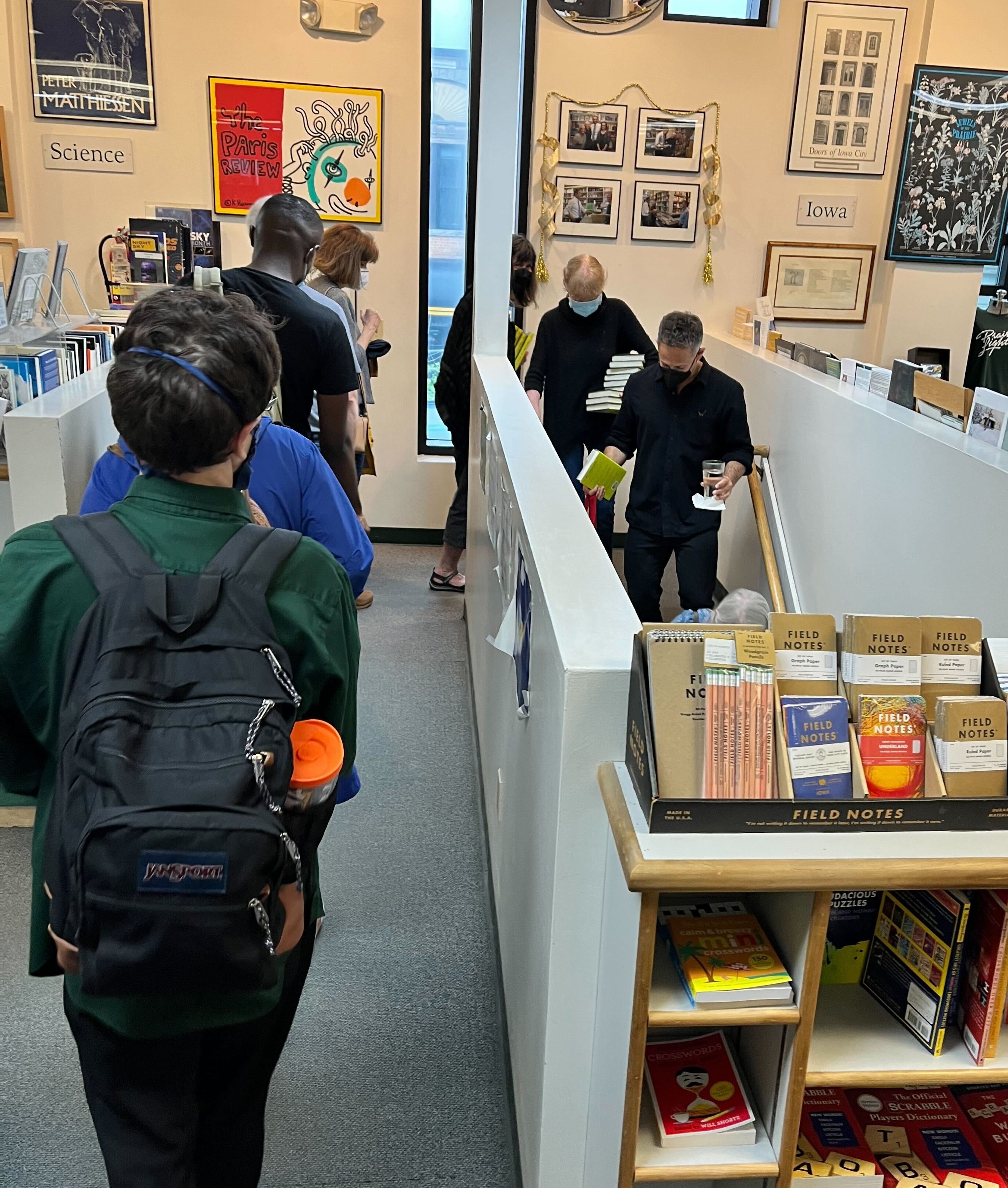 Wednesday night, in the middle of Alexander Maksik's reading from his novel The Long Corner (Europa Editions) at Prairie Lights in Iowa City, Iowa, emergency alerts blared through audience members' phones announcing a tornado warning. A nearly full room of book lovers followed booksellers Jan Weissmiller and Kathleen Johnson to the basement (the children's room). Without missing a beat, Maksik (at right, in black) continued the reading below ground. The storm passed, the warning expired, and no damage was done.
Wednesday night, in the middle of Alexander Maksik's reading from his novel The Long Corner (Europa Editions) at Prairie Lights in Iowa City, Iowa, emergency alerts blared through audience members' phones announcing a tornado warning. A nearly full room of book lovers followed booksellers Jan Weissmiller and Kathleen Johnson to the basement (the children's room). Without missing a beat, Maksik (at right, in black) continued the reading below ground. The storm passed, the warning expired, and no damage was done.
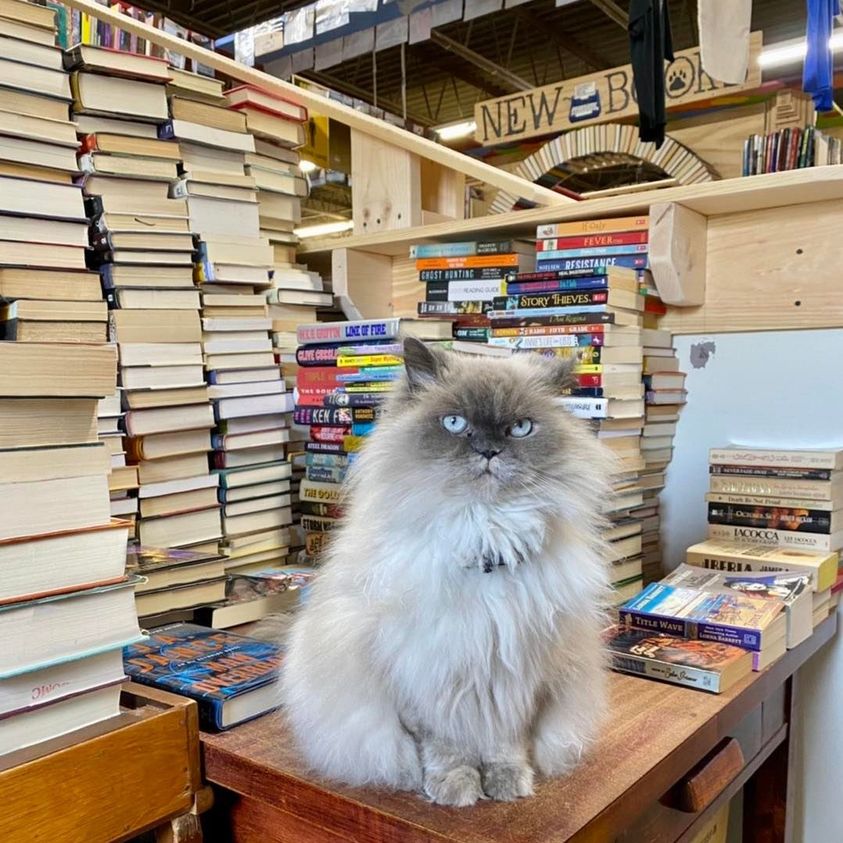 Posted on Facebook by Cupboard Maker Books, Enola, Pa.: "Annika wants to know what you are reading today."
Posted on Facebook by Cupboard Maker Books, Enola, Pa.: "Annika wants to know what you are reading today."
Microcosm Publishing & Distribution has added two more publishers, for whom it is handling exclusive worldwide distribution:
Birdcage Bottom Books, New York, N.Y., which was founded by J.T. Yost in 2008 to publish and distribute independent comics and graphic novels. Its publications have been nominated for or won multiple awards including the Eisners, Ignatz, Charly Eiselt, DiNKY and Japan Media Arts awards. Its newest release, Too Tough to Die, is a comics anthology about aging punk rockers.
Don Giovanni Records, Philadelphia, Pa., a record label founded by Joe Steinhardt and Zach Gajewski in 2003. Its growing list of books is led by Larry Livermore's How to Ru(i)n a Record Label: The Story of Lookout Records.
Stephen Cebik has been promoted to sales director at Yale University Press. He joined the press in 2005 and was most recently assistant sales director and head of art book sales. He was previously retail book department manager at the Museum of Fine Arts, Boston.
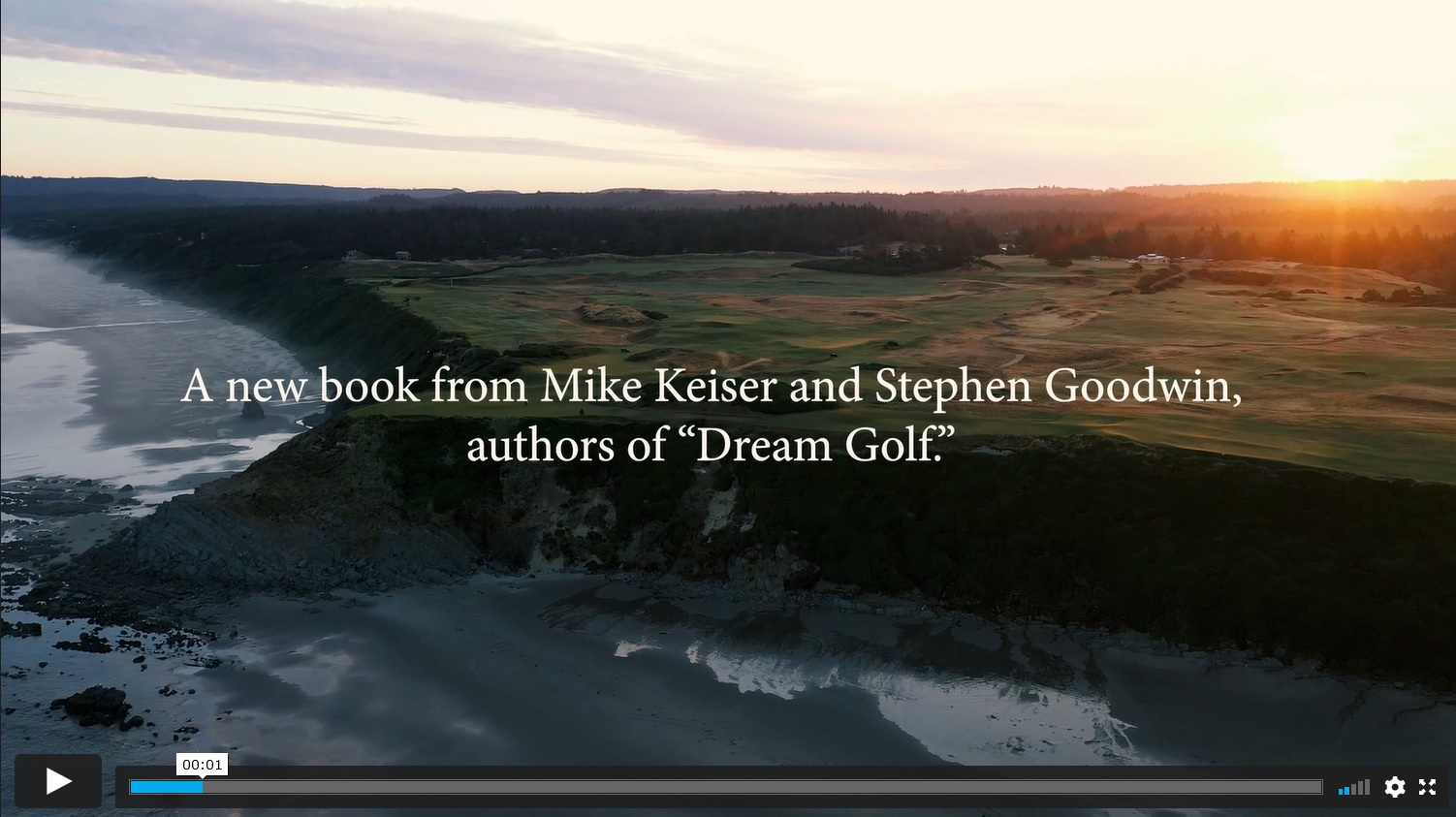 The Nature of the Game: Links Golf at Bandon Dunes and Far Beyond by Mike Keiser and Stephen Goodwin (Knopf).
The Nature of the Game: Links Golf at Bandon Dunes and Far Beyond by Mike Keiser and Stephen Goodwin (Knopf).
Tim Roth (Hateful Eight, Lie to Me) is replacing Ian McShane in the role of antagonist Ezra Shipman in Paramount+'s Australian crime drama series Last King of the Cross, inspired by John Ibrahim's autobiography, Deadline reported, adding that McShane withdrew due to health concerns.
"It's unfortunate that Ian is unable to join us, and we wish him a speedy recovery," said producer/executive producer and Helium Pictures founder Mark Fennessy. "We are truly delighted that the super brilliant Tim Roth joins our cast as Ezra and cannot wait to see him breathe life into yet another unforgettable character."
The 10-part series is currently filming in and around Sydney, with Lincoln Younes (Grand Hotel, Tangle, Barons) playing lead character John Ibrahim. The cast also includes Callan Mulvey, Tess Haubrich, Claude Jabbour, Maria Tran, Matt Nable and Damian Walshe-Howling.
Tomb of Sand by Geetanjali Shree, translated from Hindi by Daisy Rockwell, won the 2022 International Booker Prize, which "aims to encourage more reading of quality fiction from all over the world" and to celebrate the work of translators. The £50,000 (about $62,278) award is split between author and translator. Tomb of Sand is the first book originally written in any Indian language to win the International Booker Prize, and the first novel translated from Hindi to be recognized by the award.
"This is not just about me, the individual," Shree said. "I represent a language and culture and this recognition brings into larger purview the entire world of Hindi literature in particular and Indian literature as a whole."
Chair of judges Frank Wynne called the winner "a luminous novel of India and partition, but one whose spellbinding brio and fierce compassion weaves youth and age, male and female, family and nation into a kaleidoscopic whole."
---
The Women's Prize Trust has released the 2022 Discoveries shortlist, which "aims to find aspiring female writing talent from across the U.K. and Ireland." The prize is run in partnership with Curtis Brown literary agency, the Curtis Brown Creative writing school (both part of the Curtis Brown Group) and Audible.
This year's Discoveries finalists are Sui Annukka for Thursday, Sadbh Kellett for Hunt the Hare, Nikki Logan for The Last Card in the Suit, Niamh Ní Mhaoileoin for The Next Life, Katy Oglethorpe for Stitches and Ruth Rosengarten for Over.
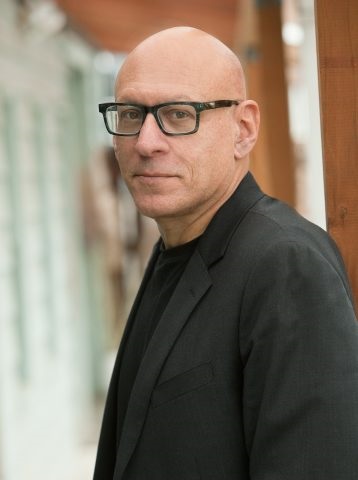 |
|
| photo: Tom Collicott | |
David Shields is the author of more than 20 books, including Reality Hunger (named one of the most important books of the last decade by Lit Hub); The Thing About Life Is that One Day You'll Be Dead; Black Planet (finalist for the National Book Critics Circle Award and PEN USA Award); and Other People: Takes & Mistakes (NYTBR Editors' Choice). The Very Last Interview (New York Review Books, April 12, 2022) draws from every interview he has given over 40 years to compile a compelling series of questions.
Handsell your book to readers:
During the pandemic, an interviewer pummels me (I never answer). What do interviewer and interviewee believe in? What--at the edge of the apocalypse--does the reader believe in, with absolute conviction? If nothing, then what sustains us? If something specific--love, family, art, civic engagement, "god"--to what degree are any such consolations actually quite illusory?
On your nightstand now:
Eliot: "These fragments I have shored against my ruins"; Richard Burton, Diaries; Aleksander Wat, My Century; Pascal, Pensées; Montaigne, Les Essais; La Rochefoucauld, Maxims; Nietzsche, Ecce Homo; Pessoa, The Book of Disquiet; James Richardson, Vectors; Don Paterson, Best Thought, Worst Thought; Sarah Manguso, Ongoingness; Alphonse Daudet, In the Land of Pain; Fitzgerald, The Crack-Up; Claudia Rankine, Citizen; Mira Gonzalez/Tao Lin, Selected Tweets; Margo Jefferson, Negroland; Jean Toomer, Cane; Anne Carson, Plainwater; Joe Wenderoth, Letters to Wendy's; Melanie Thernstrom, The Dead Girl; Jean Stafford, A Mother in History; Cheever, The Journals of John Cheever; Maggie Nelson, Bluets; Cyril Connolly, The Unquiet Grave; David Markson, This Is Not a Novel; Julian Barnes, Flaubert's Parrot; Roland Barthes, S/Z; Hilton Als, White Girls; Barry Hannah, Boomerang; Heidi Julavits, The Folded Clock; Wendy S. Walters, Multiply/Divide; Annie Ernaux, Things Seen.
Favorite book when you were a child:
Mickey Mantle, The Quality of Courage. Not sure why he was thought to be courageous; because he had a lot of injuries and tried to play through them? Clearly ghostwritten and oddly moving.
Your top five authors:
Simon Gray
Leonard Michaels
David Markson
Renata Adler
J.M. Coetzee
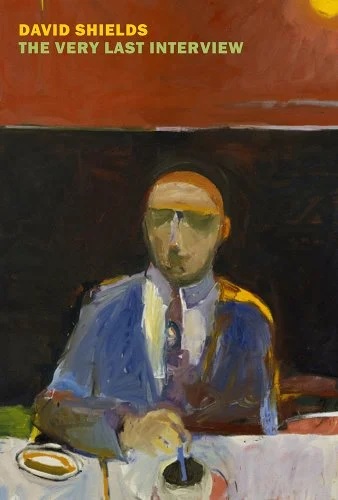 Book you've faked reading:
Book you've faked reading:
Hmm. I remember pretending to have read Walker Percy's The Moviegoer by paraphrasing a blurb on the back of the book, and my (beautiful) college classmate called me out on this; she, too, had read the back of the book. So embarrassing. I later came to read Percy and love his work.
Book you're an evangelist for:
Simon Gray, The Smoking Diaries (all four volumes). I'm truly an evangelist for this book, which I'm trying to get published in the U.S. (it's well-known in England).
Book you've bought for the cover:
Natalie Shields, Love, Floppy Disks, & Other Stuff the Internet Killed.
Book you hid from your parents:
My family wasn't like that; if anything, my parents hid books from me.
Book that changed your life:
Proust, In Search of Lost Time (see below).
Favorite line from a book:
"The agon, then." --from Lawrence Durrell's The Black Book.
I don't like this book or any of Durrell's work, actually, but I think this is one of the great lines ever; I love its (self-conscious, mocking, funny) embrace of the tragic.
Five books you'll never part with:
I must admit that of late I've moved around so much that I don't take physical books that seriously as fetishized objects. I'm constantly giving away books and buying new books. The books that I love are buried deep in my mind. Lawrence: "Better to know twelve books well than thousands of book passably."
Book you most want to read again for the first time:
I wish I could recover the innocent rhapsody with which I read Proust's In Search of Lost Time; it remains for me the best book ever written--I remember feeling that way in graduate school, but I must admit that I have trouble reading that book now. Not sure why.
What you believe is the key quote:
Flaubert: "The value of a work of art can be measured by the harm spoken of it."
The Wild Hunt by Emma Seckel (Tin House Books, $16.95 paperback, 9781953534224, August 2, 2022)
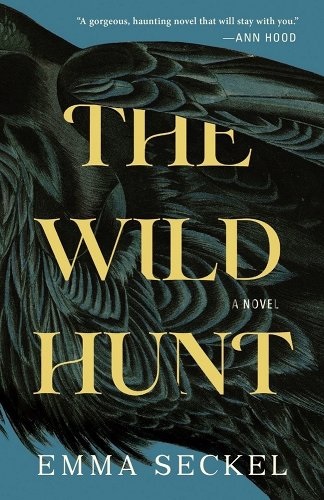 "On the first of October they arrived." Leigh Welles has just returned home to the island of her birth for her father's funeral, and the crows have returned as they do each October, but she finds nearly everything else changed since the war. So begins Emma Seckel's first novel, The Wild Hunt, an atmospheric story of place, family, home and belonging.
"On the first of October they arrived." Leigh Welles has just returned home to the island of her birth for her father's funeral, and the crows have returned as they do each October, but she finds nearly everything else changed since the war. So begins Emma Seckel's first novel, The Wild Hunt, an atmospheric story of place, family, home and belonging.
This small, isolated Scottish island lost many of its young men, "nearly an entire generation off to fight for a country they'd barely thought of until now," in World War II. Leigh's brother had gone, and though he survived, he did not come home, and all they've done since is argue. Leaving has in fact been a family trait, beginning with their mother's mysterious departure when Leigh was a girl. Later, Leigh had committed the sin (in island eyes) of moving to the mainland, where she'd been miserable: "the telephone call summoning her home had been a black sort of blessing." Now she's returned to the Welles home, "a run-down sheep farm with no sheep." Her mother gone, her brother gone, her father dead, the island haunted by its absent young men and by the sluagh--those crows who group in threes and beat upon windows and strike at eyes and kill.
Leigh drops with surprising ease into the old ways, reciting the Gaelic and joining the rituals meant to protect the islanders from the sluagh, which are said to carry the souls of the dead. She is disturbed, however, to see the crows' increased audacity--attacking villagers in the street--as well as the villagers' subdued reactions and the persistent signs of the war, which has been over for years. Meanwhile, Iain MacTavish, widower and RAF veteran, struggles to function at all, some days leaving his bed only when forced by his mother-in-law. Leigh's younger childhood friend Hugo McClare kills a crow, and then disappears, on this island too small to hide a man. Leigh and Iain unexpectedly connect over a shared purpose, although it may be of the saddest sort.
The Wild Hunt is part ghost story, part elegy to war and traditional lifestyles, dreamlike even in its horrors. Seckel weaves historical fiction with mystery and fantastic elements and threads of romance in this tale of love, grief, attachment to place and resistance to change. Her island setting is both otherworldly and firmly rooted, and her prose style is lushly evocative. This imaginative novel is memorable and wild indeed. --Julia Kastner, librarian and blogger at pagesofjulia
Shelf Talker: On a remote Scottish island, villagers battle the sluagh--crows said to host the souls of the dead--and the aftermath of World War II, and one young woman reckons with the ghosts of her own past.
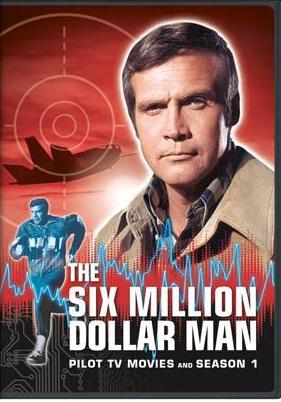 As the long holiday weekend begins and languorous summer nears, my brain is stuck on a troubling image. In the opening sequence for the 1970s ABC TV series The Six Million Dollar Man, former astronaut Steve Austin (Lee Majors) crashes his experimental jet and is subsequently--literally--reconstructed.
As the long holiday weekend begins and languorous summer nears, my brain is stuck on a troubling image. In the opening sequence for the 1970s ABC TV series The Six Million Dollar Man, former astronaut Steve Austin (Lee Majors) crashes his experimental jet and is subsequently--literally--reconstructed.
"Gentlemen, we can rebuild him," the voiceover intones. "We have the technology. We have the capability to make the world's first bionic man. Steve Austin will be that man. Better than he was before. Better... stronger... faster." Then we see him running at what is meant to be superspeed, though initially--and often later--he seems to be hyper-sprinting in slow motion.
Why am I thinking about this? Blame HuffPost, which clued me in recently to "a new hack for speed reading doing the rounds on Twitter right now. It's called 'bionic reading' and it's really dividing people."
Bionic Reading's website describes the strategy as "a new method facilitating the reading process by guiding the eyes through text with artificial fixation points. As a result, the reader is only focusing on the highlighted initial letters and lets the brain center complete the word. In a digital world dominated by shallow forms of reading, Bionic Reading aims to encourage a more in-depth reading and understanding of written content."
BR "revises texts so that the most concise parts of words are highlighted. This guides the eye over the text and the brain remembers previously learned words more quickly." Founder & owner Renato Casutt observes: "Future needs origin. I'm a typographic designer from Switzerland with 25 years of experience. Passionate about what I do and full of joy to be able to help other people. Growing with Bionic Reading and breaking old patterns has been driving me for years."
Answering the "why" question, BR "aims to play a supporting role in the absorption of volume text. We see technological progress as an opportunity for all those who want to increase the pleasure of reading in a noisy and hectic world in a focused way and without distraction."
HuffPost had some fun sharing Twitter overreactions (redundant, I know) to the concept, noting that while some people praised the idea, "others worried that speed reading in this way was 'robotic,' would take the joy out of reading, and might stop you from retaining any of the information. One even called it a 'sickening technoperversion.' Some Twitter users said it could help those with cognitive issues, such as dyslexia or ADHD, while others suggested it would do the opposite and make it more difficult, as they may likely already substitute a 'close enough' word, which could change the whole context of what was being read."
 Then, without warning, The Six Million Dollar Man made a cameo appearance in my brain. Specifically, I considered Steve Austin's bionic left eye, which (or so Wikipedia tells me) had a 20.2:1 zoom lens and night vision function, but no apparent gains in reading focus and comprehension. I'm still marveling at how he ran at high speed in slow motion.
Then, without warning, The Six Million Dollar Man made a cameo appearance in my brain. Specifically, I considered Steve Austin's bionic left eye, which (or so Wikipedia tells me) had a 20.2:1 zoom lens and night vision function, but no apparent gains in reading focus and comprehension. I'm still marveling at how he ran at high speed in slow motion.
I suspect I'm not the target audience for BR. Speed reading innovations have never appealed. Evelyn Wood Reading Dynamics long ago promised to teach me how to determine my current reading rate, then increase it immediately. "Your reading speed will double--guaranteed!... Polish off entire books in one sitting. Plus, there's an advanced comprehension and retention system that will help you understand more."
No thanks. I've always been rubbish at fast reading, not least because I have no interest in the concept beyond curiosity. I could be a poster child for the Slow Books movement. By nature and temperament, I'm a patient and deliberate reader, though the pace increased measurably when I took a bookseller's job in the early 1990s.

During my really slow reading years, I was habitually monogamous, spending a month with a book, three months with a writer's works. For a long time now, however, I have juggled several books at once--good books and bad books; print books, e-books and audiobooks--while ever casting a covetous gaze toward other tempting titles within reach on shelves and online. There have been far too many one-night-reads, when I scanned 50 pages and bailed.
But I can't really say I read dramatically faster than I used to. As a bookworker, I don't always have a vested interest in the titles that land on my desk, though I begin each with hope. Page one is always full of possibility.
Books remain irresistible. Can I read them all? No. But within the considerable limitations of my ability, time and attention span, I'm reading as fast as I can. Except, of course, when I read... slowly.
Reading is a journey, not a race. With that in mind, enjoy this long weekend, the first taste of summer before summer officially begins. And slow down if you're reading too fast. As Arden Reed observes in Slow Art: The Experience of Looking, Sacred Images to James Turrell, "slowness is also essential to grasping the experience of modernity--if only because the hallmark of modernity is speed."